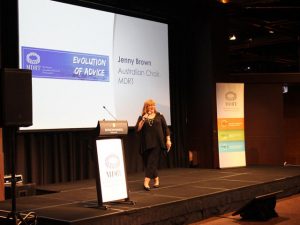Bravura Solutions recently released an article by its Product Manager, David Loader, re-produced here, with our thanks. David offers a perspective around the challenges faced by life companies in their quest to deliver innovative products and services to a sometimes impatient consumer world. According to David, one of the critical issues insurers must first resolve relates to its old or discontinued products and the ageing legacy systems on which they’re maintained…
Rapid change is occurring across the life insurance industry. New legislation and self-regulation, the sale and consolidation of several existing life insurers, and the ongoing development and introduction of new technology is redefining the life insurance space as we know it. While new technologies are enabling companies to engage with customers in ways previously unavailable, it has simultaneously exposed the deficiencies that exist within the back office operations of many life insurers.
Mergers and acquisitions have resulted in life insurers inheriting a complex web of decades old legacy administration systems. Further complexity has been added by these insurers launching new propositions onto new systems, with the intention to migrate existing administration systems as a secondary priority. Invariably, initial project costs run over or reprioritisations occur resulting in the business case for these migrations no longer standing up against the cost and risk involved. Over time, a portfolio of ageing systems results in fragmented data, manual processes and limited capacity for innovation as available budgets are consumed with ‘keeping the lights on’. This has precluded a transformation to true client centric operations that support digital experiences demanded by modern day consumers.
Maintaining legacy systems causes a medley of issues and ties the hands of organisations in terms of innovation
Maintaining legacy systems causes a medley of issues and ties the hands of organisations in terms of innovation, cross-selling and up-selling. However, the desire to retain this legacy business often presents a challenge to clearing the decks of these systems. Legacy policies are often valuable, having surpassed the point of paying off initial acquisition costs, so life insurers are rightly cautious. Of the few that have undertaken such a rationalisation program, many have been unsuccessful as historically there haven’t been administration systems available that provided a single, integrated, solution covering the breadth of products and functionality required.
As a solution, life insurers have been lobbying the government for legislation allowing them to rationalise unprofitable legacy products so that customers can be moved to more contemporary policies. However, given the recently unfavourable media coverage and current political environment, it is difficult to envisage any concessions coming towards the life insurance industry.
System rationalisation appears to be the only realistic option available to life insurers. While it will not provide all the benefits of product rationalisation, it is a step in the right direction and can still deliver significant efficiencies. Unlike aging legacy systems, today’s next generation administration systems provide product configurability as a core feature, enabling legacy products to be replicated quickly and inexpensively. Existing customers can be migrated to these new systems unbeknownst to them, thus negating the possibility of shock lapses typically experienced with mass customer communications; which would be required if products were rationalised.
Scottish Friendly in the UK is a leading example of what can be achieved when a company chooses to rationalise systems onto a single modern administration platform. Following the completion of a program of work to consolidate their legacy administration systems, the company saw an immediate cost reduction of over 40%, an efficiency improvement from servicing 8,500 policies per customer service officer to 15,000 policies per customer service officer, with a return on investment in less than three years. Following the success of their project and the ease at which they could administer their own business, they launched a successful third-party administration business.
There is no question that the life insurance industry has the modernisation of administration systems on its ‘to-do’ list.
There is no question that the life insurance industry has the modernisation of administration systems on its ‘to-do’ list. Not only are they facing internal pressures to reduce operating costs but also external pressures from customers to provide an enhanced online experience – as delivered by other areas of the financial services industry. However, due to conflicting priorities, until such time that more significant external pressure is applied – be that from a disrupter, incumbent competitor or regulator – the resources and attention required will likely be allocated to other projects that drive new sales, maintain existing systems, and/or enable organisations to comply with ongoing regulatory change. But as we have seen with the likes of Scottish Friendly, the opportunities are significant for those insurers that take the vital step towards systems modernisation; widening the competitive gap between winners and losers in the market.
Bravura Solutions Product Manager, David Loader, has over 11 years of experience in the life insurance industry covering Retail, Group and Direct Life insurance. Having held various senior product management roles, he has an extensive understanding of product development as well as the experience in claims management, policy administration and compliance.










